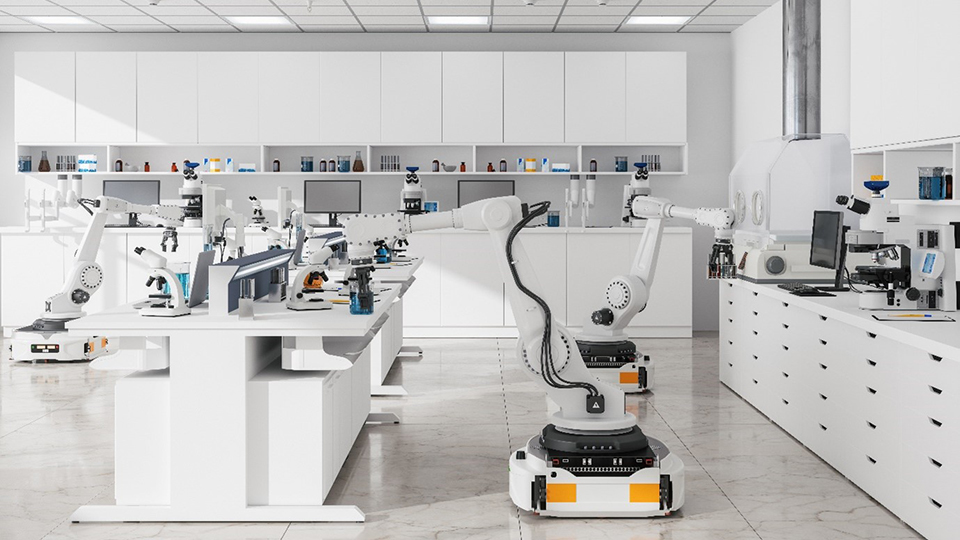Costa Rica’s Medical Device Revolution
25 نوفمبر 2024
Costa Rica has transformed itself into a global hub for medical device manufacturing and innovation. Once known primarily for its ecotourism and biodiversity, the country is now attracting major attention from the healthcare industry. With a strategic location, skilled workforce, and strong government support, Costa Rica is playing a key role in advancing medical technology on a global scale. After a conversation with the President of Costa Rica’s Medical Device Cluster, Federico Rivera, it’s clear that the country’s success story in this sector has big implications for the future of healthcare worldwide.
Can you provide a snapshot of the current landscape of the medical device and healthcare industry in Costa Rica?Over the past two decades, Costa Rica has transformed into a thriving hub for medical technology and pharmaceutical innovation. Home to over 90 MedTech multinationals, the country has become a key player in the global healthcare landscape. Remarkably, 12 of the world’s top 30 MedTech Original Equipment Manufacturer (OEM) companies have established manufacturing operations in Costa Rica, spanning 18 specialized subsectors. Beyond manufacturing, Costa Rica’s ecosystem supports innovation, with 10 MedTech companies actively conducting research and development (R&D) within its borders. Additionally, 27 pharmaceutical companies operate in the country, further solidifying Costa Rica’s position as a leader in healthcare technology and manufacturing.
In terms of export growth, the country has seen dramatic growth over the past two decades. In 2000, medical devices made up just 5% of the country’s total exports, with a value of $288 million. Fast forward to 2023, and this sector now represents a staggering 42% of total exports, with exports valued at $7.6 billion.

"Medical Devices is now the #1 export product of Costa Rica, and globally the country ranks #8 in Medical Devices exports." - Federico Rivera
Alongside remarkable growth in exports, Costa Rica has also experienced a significant diversification in the types of medical devices it produces. In 2000, the country’s medical device exports were primarily focused on women’s healthcare, surgical devices, aesthetics, dental, and medical delivery systems. However, by 2023, Costa Rica’s portfolio has expanded to include advanced specializations such as cardiovascular, respiratory, radiology, ostomy, neuro-endovascular, optics, endoscopy, orthopedics, neuromodulation, pharmaceuticals, and apheresis machines –devices designed to separate blood components (e.g. blood cells, plasma, and platelets).
How did Costa Rica’s healthcare and life sciences ecosystem positively evolve over the last decade?
Costa Rica has successfully attracted foreign direct investment (FDI) through targeted investment incentives, such as tax benefits and the creation of Free Trade Zones (FTZs), where many of the world’s top MedTech companies have established advanced manufacturing operations. These FTZs offer a competitive environment for high-tech manufacturing, fostering innovation and enhancing the country's medical manufacturing capabilities.
Additionally, Costa Rica’s commitment to strong intellectual property (IP) enforcement has provided confidence to international investors and innovators, ensuring that their innovations are protected. The country’s ecosystem, supported by these factors, has allowed it to strengthen R&D efforts and create a supportive environment for entrepreneurs and SMEs to flourish in the healthcare sector.
Costa Rica’s Medical Device Cluster has been driven by a strategic five-pronged approach. This strategy, which focuses on industry, academia (public and private), entrepreneurship, government, and financial sectors, has played a crucial role in transforming the country into a global medical device hub.
Notably, the importance of collaboration between industry and academia in shaping relevant educational curricula for future engineers and technicians in Costa Rica’s MedTech sector has been critical. By actively engaging with universities and technical training centers, companies aim to ensure students are trained in the latest technologies and industry practices. This partnership often includes providing resources such as equipment, allowing students to gain hands-on experience with the tools they will use in their careers. For instance, companies frequently donate or share equipment, like laser machines, which technicians can use for training purposes. While significant progress has been made in these interactions, there is still considerable work to be done to strengthen these collaborations and further enhance the training of professionals entering the MedTech field.

How can WIPO support SMEs and entrepreneurs in this field?
One of the key IP challenges for Costa Rica’s growing MedTech ecosystem, particularly for SMEs and startups, is navigating the complexities of IP protection. Despite the increasing number of innovative projects, many entrepreneurs lack the knowledge and support needed to file patent applications effectively. Startups often struggle with the basics, such as preparing patent dossiers or even identifying the correct forms for submission. Local legal firms also encounter difficulties because they often lack the expertise needed to navigate the complex patent processes that are specifically related to advanced medical technologies.
To address these challenges, there is a significant need for knowledge transfer initiatives that can provide entrepreneurs with the information and resources necessary to navigate the IP landscape. Establishing partnerships with experienced IP professionals could help disseminate best practices and offer targeted training on IP management for startups. As Costa Rica continues to expand its R&D activities, these IP challenges are expected to grow, highlighting the need for comprehensive support systems that facilitate knowledge sharing and mentorship.
What is next for Costa Rica?
A notable trend in Costa Rica’s MedTech sector is the rise of contract manufacturers operating under white label agreements, where they produce goods that are branded and sold by another company. This model allows MedTech companies to expand their offerings without directly managing production, which is particularly helpful when in-house capacity is limited. As more companies face capacity constraints or challenges in various locations, their reliance on these contract manufacturers has significantly increased.
This shift underscores the critical need for robust trade secret protection, which safeguards proprietary information—such as production methods or client lists—against unauthorized use or disclosure, maintaining the competitive advantage and confidentiality that are essential in this sector.
When companies partner with manufacturers that possess assembly and validation capabilities, establishing strong legal frameworks becomes imperative, going beyond typical non-disclosure agreements (NDAs). It is essential to have comprehensive contracts that safeguard proprietary information and processes. Such legal safeguards are crucial for maintaining a competitive advantage and ensuring that sensitive trade secrets remain protected during the manufacturing process. By prioritizing these measures, companies can foster secure partnerships while driving innovation in Costa Rica's thriving MedTech ecosystem.
Looking ahead, as Costa Rica increases its R&D efforts within the country, prioritizing these legal measures will not only foster secure partnerships but also drive innovation and attract further investment into the sector. With a robust commitment to R&D, the country is well-equipped to harness new technologies and develop cutting-edge solutions that can impact global health.